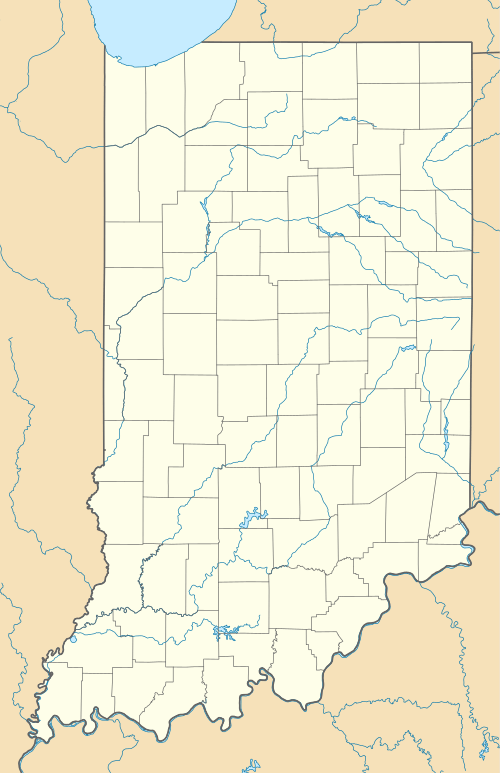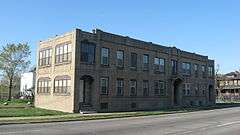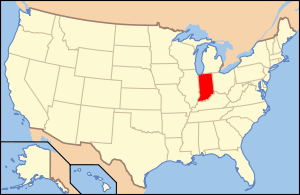American Sheet and Tin Mill Apartment Building
|
American Sheet and Tin Mill Apartment Building | |
|
American Sheet and Tin Mill Apartment Building in Gary, Indiana | |
  | |
| Location |
633 W. 4th Avenue Gary, Indiana |
|---|---|
| Coordinates | 41°36′13″N 87°20′43″W / 41.60361°N 87.34528°WCoordinates: 41°36′13″N 87°20′43″W / 41.60361°N 87.34528°W |
| Area | less than one acre |
| Built | 1910 |
| Architect | D.F. Creighton; United States Sheet & Tin Plate Co. |
| Architectural style | Poured concrete |
| MPS | Concrete in Steel City: The Edison Concept Houses of Gary Indiana MS |
| NRHP Reference # | 09000427[1] |
| Added to NRHP | June 17, 2009 |
The American Sheet and Tin Mill Apartment Building, one of the Edison Concept Houses, is a historic building at 633 West 4th Avenue in Gary, Indiana. The building was designed by D. F. Creighton and built in 1910. It was added to the National Register of Historic Places on June 17, 2009.[1] It was built by the United States Sheet & Tin Plate Co.
Thousands moved to Gary in the early 1900s for work in burgeoning steel industry. Providing housing quickly and affordably, Thomas Edison's 1906 proposal of pouring a concrete mixture into a single mold for the facades, roof, stairs, walls, and other parts of a house was adopted for company housing (Edison was not directly involved).[2][3]
See also
References
- 1 2 National Park Service (2010-07-09). "National Register Information System". National Register of Historic Places. National Park Service.
- ↑ Gary's concrete houses and the genius of Thomas Edison May 20, 2013 Hidden Gems; Indiana Landmarks
- ↑ "Indiana State Historic Architectural and Archaeological Research Database (SHAARD)" (Searchable database). Department of Natural Resources, Division of Historic Preservation and Archaeology. Retrieved 2016-05-01. Note: This includes Christopher Baas (May 2008). "National Register of Historic Places Inventory Nomination Form: American Sheet and Tin Mill Apartment Building" (PDF). Retrieved 2016-05-01. and Accompanying photographs.
Further reading
- The Sheet and Tin Plate Company Edison Concept Houses of Gary, Indiana by Charles Vinz 12/11/08 Proximity magazine
- Concrete Utopia
by The Staff of the Indiana Magazine of History September 3, 2012 Indiana public media. (historic file)


